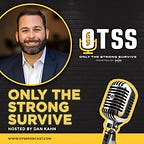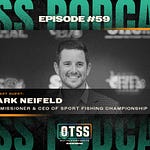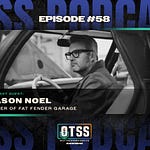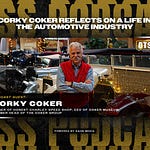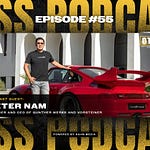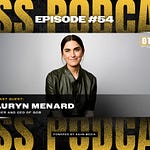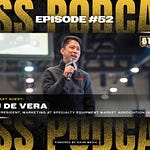Dylan Tomine is an avid lover of the outdoors, an author and a fly fisherman. Growing up in the Pacific Northwest, Tomine learned his love of fishing and appreciation of nature from his father, spending much of his youth in the local rivers and mountains. That love of nature also plays a central role in the two books he has written. “Closer to the Ground” follows a year with his family on Bainbridge Island, developing an appreciation of the beauty of the natural world. “Head Waters” traces the evolution of his love of fishing to the survival and conservation of the fish themselves.
Tomine also works as the creative director of Patagonia Provisions, an effort of the well-known outdoor clothing company Patagonia. It focuses on expanding regenerative certified organic agriculture, responsible ocean fishing and other sustainable food practices. In this episode of the “Only The Strong Survive” podcast, Tomine shares how Patagonia has carefully blended commerce with conservation, why your brand’s mission matters and other topics with host Dan Kahn. Click on the icon above to listen to the entire episode and here are our key takeaways:
· Conservation and commerce are not opposing forces.
· Everyone can love their job if they work at the right company.
· Mission-driven brands have happier employees.
· Always do what you love and not what someone else wants of you.
Conservation Can Mix with Commerce
Some companies pay lip service to conservation by briefly mentioning it in an obscure mission statement. However, Patagonia has made conservation a true core value and central to everything it does. Patagonia's success proves that it is possible to blend commerce and conservation even though both have typically been thought of as opposing forces.
“With Patagonia, with apparel, they work on several levels. One is trying to figure out ways of making a raincoat, insulated jacket or wicking underwear that causes the least amount of harm possible,” says Tomine. “But Yvon would be the first one to tell you that doesn’t mean they’re not doing harm. So, they have had campaigns to encourage people to buy less and just buy what they need, knowing that even the most sustainably produced clothing is still bad for the planet. They have also channeled lots of financial support, bandwidth support and capacity support to the NGOs and the grassroots non-profits out there really making a difference.”
Blend Your Passion with Where You Work
The old-school thinking was that only certain people, like photographers or writers, could combine their passions with a career. However, Tomine points out that everyone, regardless of their profession, can do what they love if they work at a brand that shares their beliefs and values. Working for a company you believe in and whose mission aligns with your own is always better than any alternatives.
“I would say you can apply your skill set to almost any company or brand if the company or brand stands for what you want it to,” says Tomine. “It doesn’t matter if you are an accountant, an HR specialist, a writer, an art director or whatever it is, those companies need those skill sets. They’re actually looking for people who have a history of activism or fly fishing or whatever it is and have a commercially viable skill set as well.”
Working for the Right Company Feels Good
No matter how you slice it, work makes up the majority of our lives. Nobody wants to spend an inordinate amount of time somewhere they don’t like. Creating a mission-driven company like Patagonia attracts mission-driven employees. When those missions and values align, you wind up with happy employees.
“Aligning with values is important and has become even more important to how people feel about what they do for a living,” says Tomine. “You know, for most people, the job you do day in and day out is the thing you spend the most time doing of anything, right? So, it feels good to work for a company that you believe in.”
Do What You Love and Not What’s Expected of You
A valuable lesson that Tomine learned early on is to pursue what you love and not what others want of you. Excelling in high school, Tomine became a pre-med major because he thought that was what he should do to please others. However, he quickly realized his heart wasn’t in it and readjusted his course to become an English major.
“All of a sudden, my homework went from these calculus formulas that I could not even comprehend what they were to reading “The Sun Also Rises” and Walt Whitman and writing stories,” says Tomine. “I felt like the world just opened up. All of a sudden, it’s this stuff that is super interesting to me. I realized that the people who were doing really well in pre-med had that same kind of interest in the hard sciences and math. That wasn’t ever going to be me.”


